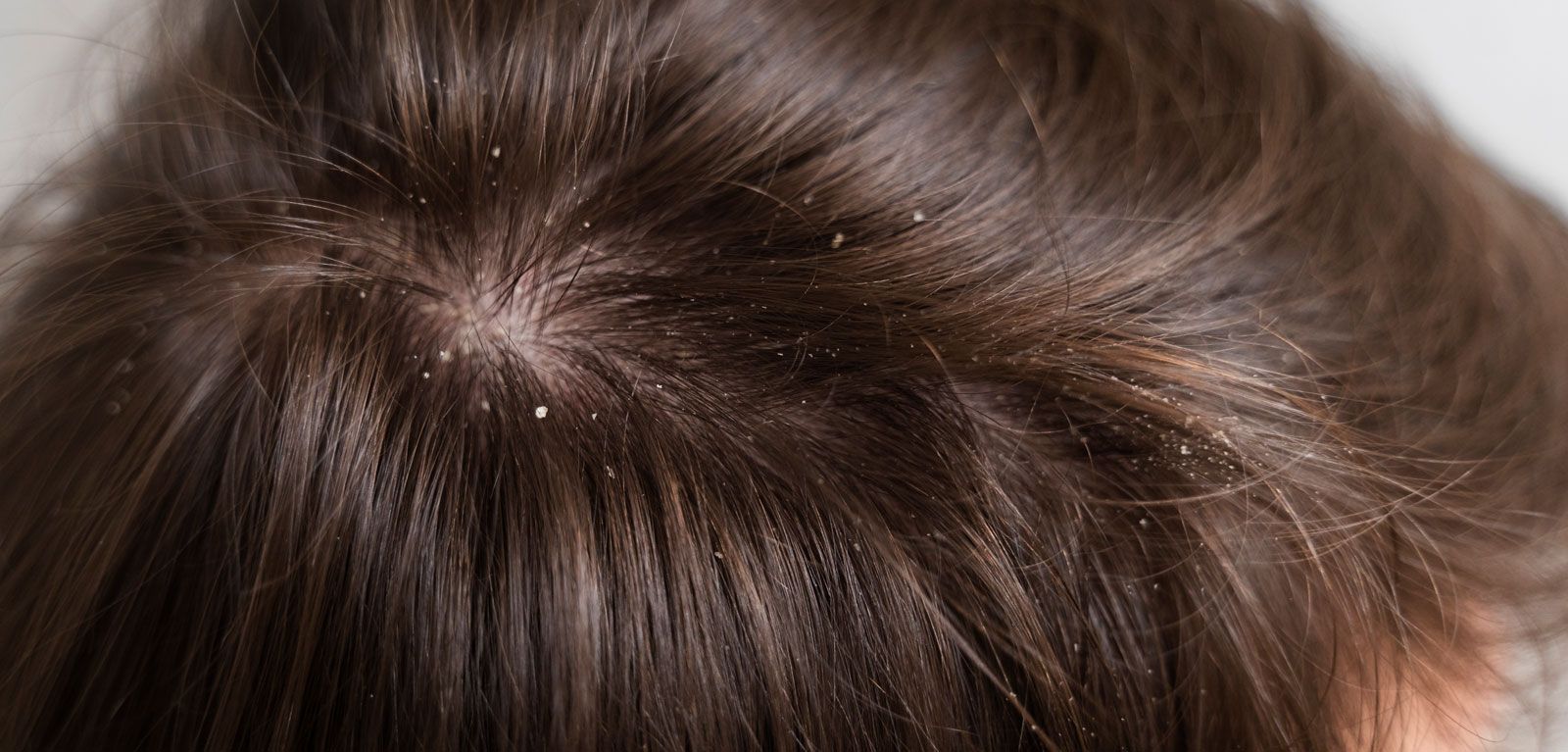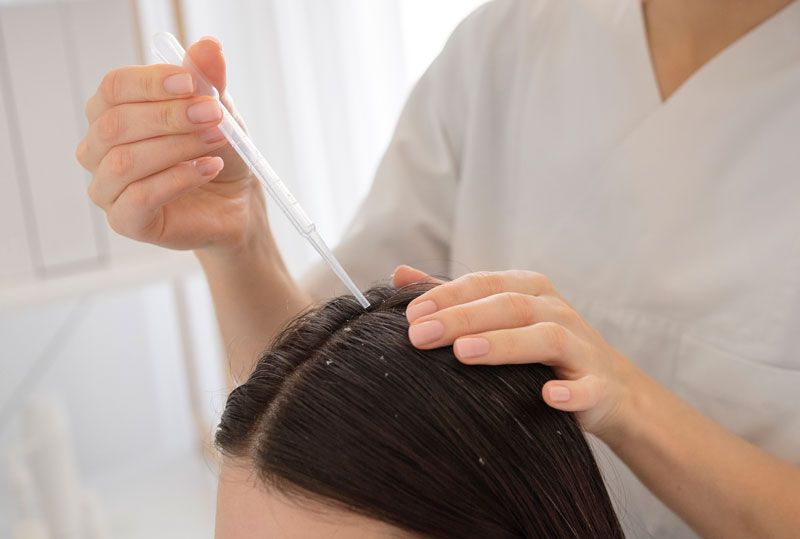Dandruff.

Overview
Dandruff, also known as seborrhea, is a common condition of skin areas rich in oil glands (the face, scalp, and upper
trunk), marked by flaking (overproduction of skin cells) and sometimes redness and itching (inflammation) of the
scalp, varying in severity from mild flaking of the scalp to scaly, red patches. Dead skin cells on your scalp flake off,
often landing on your shoulders and clothing.It isn't contagious or serious but it can be embarrassing and difficult to
treat.
Wet dandruff is dandruff that has become wet or oily because of the overproduction of sebum on the scalp. Dry dandruff, on the other hand, is made up of small, white flakes which can fall off of the scalp easily.
Wet dandruff is dandruff that has become wet or oily because of the overproduction of sebum on the scalp. Dry dandruff, on the other hand, is made up of small, white flakes which can fall off of the scalp easily.
Cause
Acne is due to a combination of factors. The exact mechanisms are not fully understood. However, some of the
implicated factors are:
- Hormone levels
- Fungal infections
- Nutritional deficits
- Neurogenic factors
- Differences in skin barrier lipid content and function may account for individual presentations
Symptoms
One or more of the following areas are affected : the scalp, hairline, forehead, eyebrows, eyelids, creases of the nose
and ears, ear canals, beard areas, breastbone, mid back, groin, or armpit.
Dandruff presents as
Dandruff presents as
- Asymptomatic
- Itchy and flakey scalp
- Diffuse bran-like scaly patches within hair-bearing areas of the scalp
- Red patches in scalp
The signs and symptoms may be more severe if you're stressed, and they tend to flare in cold, dry seasons.
Treatments
- Medicated shampoos twice weekly for at least a month and if necessary, indefinitely.
- Steroid scalp applications reduce itching and should be applied daily for a few days every so often.
- Combination therapy is often advisable.
- Alternative treatments, such as tea tree oil shampoo, may be used.

Home care / DIY care
-
Develop a hair and scalp care routine that suits you
-
You need to wash your scalp and hair more often-Frequent/daily shampooing or a longer lather time.
-
Manage your stress-Stress affects your overall health,even help trigger dandruff or worsen existing symptoms.
-
Eat a healthy diet. A diet that provides enough zinc, B vitamins and certain types of fats may help prevent dandruff.
-
Sunlight may be good for controlling dandruff- just spend a little time outdoors. And be sure to wear sunscreen on your face and body.
-
Limit hair-styling products-Hair-styling products can build up on your hair and scalp, making them oilier.
FAQs
Is dandruff contagious?
No, you can't spread or catch dandruff. Also, rest assured that dandruff doesn't reflect poorly on your hygiene. You
could be washing your hair every day and be totally well-groomed and still spot flakes from dandruff. Even then,
severe cases of dandruff can often be easily cleared up by using an over-the-counter shampoo.
Why are my flakes yellow instead of white?
Yellow flakes can be a sign of oily skin affected by seborrheic dermatitis, a common but more intense form of
dandruff. Along with flakes, skin may also be red and irritated. Stress, fatigue, and sudden weather shifts can trigger
flare-ups of seborrheic dermatitis.
Is shampooing drying out my scalp and causing dandruff?
You may have a dry scalp that is being irritated by over-shampooing or by use of styling products. And this irritation
may be the cause of flaking that looks like dandruff. A dry scalp is different from dandruff and may require different
treatment. If you've tried using a dandruff shampoo and seen no visible change, consult a doctor or dermatologist.
Is dandruff a fungus?
The major culprit of dandruff is a fungus called Malassezia. This fungus exists on most adults' scalps. It feeds on the
oils on your scalp, breaking it down and leaving oleic acid in its place
Does dandruff cause hair loss?
Dandruff itself does not cause hair loss. However, severe dandruff can cause a person to scratch their scalp so hard
that they injure it. Repeated inflammation in the hair follicles can cause damage and scarring, slowing or stopping
hair growth. This can cause weak or thinning hair.
best natural results
Elara has expertise in technological advances & their suitability, and adaptability to different subjects.
We strive to treat our patients with high quality affordable & excellent Skin and laser treatments. You will get that natural touch of treatment that you will hardly get anywhere with us.
We strive to treat our patients with high quality affordable & excellent Skin and laser treatments. You will get that natural touch of treatment that you will hardly get anywhere with us.
